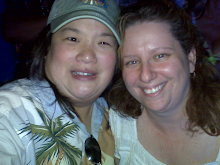Let me start by apologizing for my extreme tardiness in posting this blog. I realize that my actions affect my classmates and for this I am sorry. At this point, I"m going with the theory of better late than never.
Siemens discussed three elements that will effect distance education, global diversity, communication, and collaborate interaction. It is difficult to choose just one to talk about, but I think the global diversity is one that has had a significant impact on my experiences. I teach several online classes, but my most popular one is Introduction to Linux. The college I work for has a large military population, so many of my students are active duty military. This makes for a very diverse class. A few semesters ago, I had 20 students and only 5 were in the local area. There were 2 in Iraq, 1 in Afghanistan, 1 in Uzbekistan, and the rest were scattered all around the US. Not only was there a geographical diversity, there was a wide range of ages and experiences. The ability to have students share their perspectives and insights about the class with one another provided a very rich and engaging class. The nature of the online class allowed students time to read and process the comments. Then they can have meaningful dialogue and exchange that may not occur in a F2F class. In a traditional F2F class, the more experienced students can dominate the discussions and novices do not have time to process the comments and therefore cannot learn from it.
There are so many tools available now that can increase interactions. There are webcams, web conferencing, virtual worlds, instant messaging, and interactive learning management systems. The tools are there, but what we need are people that are trained in how to use the tools. We literally have the world at our fingertips, but yet so much of learning is still in the dark ages. Distance education is still the red-headed step child of education. I know I was told one time at a residency, that my PhD from Walden was still not going to be enough to get me on faculty at an established land-grant university. I hope that someday that sentiment will change and my PhD from Walden will be regarded as if I went to University of Arizona, but I’m not sure I will see that in my lifetime.
In searching for some other educational blogs, I came across one that presents arguments against distance education (http://selil.com/?p=1122). And while I don’t agree with everything that is said, he makes some valid points. Sam asks the question, “Can you know that a distance education has truly met the obligations of an education a society expects?” I believe this is what we as educational technology students must address as scholarly practitioners. If we don’t use the tools that are available properly, then we have failed to provide the educational experiences that students and society deserves. Another blog I found http://thejournal.com/articles/2009/06/18/helping-educators-bridge-the-technology-gap.aspx, talks about teaching the teachers. I’ve always felt that we talk a lot about the importance of using Web 2.0 and other technologies, but we don’t focus on making sure the teachers know how to use the tools. It’s great to want to use all the tools, but if no one spends the effort to teach those trying to use it, it won’t be effective. Teachers will either stop using it because it is too much of a hassle to learn it, or the attempts will be minimal and students will disregard it because it comes off as shabby. Things to think about… until next week.
Subscribe to:
Post Comments (Atom)

1 comment:
An interesting post I must say Grace! You make a very good point about the tools needed being at our fingertips. The question as you have asked or wondered, is getting people to learn them, use it and use it to critically think and solve some of the problems we face today. Without a doubt, we are starting to see some of these but we need more!
This also includes the world coming to a realization that there is a second life outside of where we live - the technology/virtual world. They need to realize a degree, knowledge transfer and learning will not always take place in a grand style traditional school.
Post a Comment